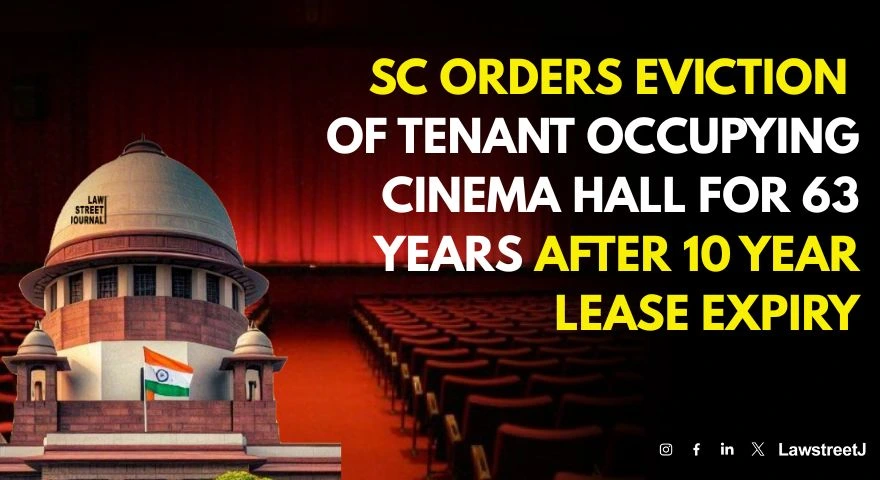NEW DELHI: The Supreme Court on Thursday ended a legal battle where tenant continued to cling to a Cinema hall building in Prayagraj for 63 years after expiry of 10-year lease.
Giving a major relief to the landlord's family, a bench of Justices M M Sundresh and K V Vishwanathan highlighted that the bona fide requirement for occupation of the landlord of a property has to be liberally construed and, as such, even the requirement of the family members would be covered.
Acting on plea by family member of landlord, the court directed the respondents, legal representatives of Mahendra Pratap Kakan who entered the suit property on October 13, 1952, to vacate the premises by December 31, 2025.
"We finally bring the “curtains down” on this long drawn out litigation concerning the cinema hall," the bench said.
The court allowed the appeal and set aside the judgment and order of the High Court of January 09, 2013.
The respondents entered the suit property by virtue of a lease deed executed by one Ram Swarup Gupta, the then owner of the suit property. The lease was only for a period of 10 years.
The predecessor-in-interest of the present appellant, one Murlidhar Aggarwal purchased the suit property on March 26, 1962 related to the Cinema building situated at Shiv Charan Lal Road, Allahabad, (now Prayagraj) popularly known as Mansarovar Palace, along with its furniture, fixture and fittings.
Relying upon Section 21 of the Uttar Pradesh Urban Buildings (Regulation of Letting, Rent and Eviction) Act, 1972, the bench pointed out one of the circumstances to be seen while appreciating the comparative hardship is to examine whether the tenant has brought on record any material to indicate that at any time during the pendency of the long drawn-out litigation, he made any attempt to seek an alternative accommodation and was unable to get it.
"This factor will be one of the circumstances to be taken into consideration while determining whether the claim of the landlord is bona fide," the bench said.
Ruling in favour of landlord, the bench noted, the bona fide need of the appellant-legal representatives is clearly established.
The court also noted no doubt, Rule 16(2)(c) of the Uttar Pradesh Urban Buildings (Regulation of Letting, Rent and Eviction) Rules, 1972 did mention that the greater the existing business of the landlords own, the less the justification for allowing the application.
The court said, it is also true that comparative hardship is to be appreciated under the proviso to Section 21(1)(a) of the Uttar Pradesh Urban Buildings (Regulation of Letting, Rent and Eviction) Act, 1972.
"We have weighed the evidence on record and found that taking the case of the respondents at its highest, and even if we believe each and every averment of the respondents at best, the parties in financial terms could be said to be equally poised," the bench said.
The respondents who owned several businesses have managed to cling on to the premises for the last 63 years, after the expiry of the 10-year lease, the bench said.
The bench also found nothing was on record to show that the tenant who has been in the premises for a total of 73 years with 63 years of them after the expiry of the lease, has made any attempt to seek any alternative accommodation and nothing was brought on record to show that he was unable to get one.
It also pointed out nothing has been brought on record to show that the business of the appellant’s family is so vast as to neutralize their bona fide claim to evict the respondents from the suit property.
"Whether we apply the bona fide need as on the date of the eviction petition or take into account the subsequent events, we find that the bona fide need of the appellant on the facts of the present case is made out on both scenarios," Justice Vishwanathan said in the 24-page judgment on behalf of the bench.
In the absence of any denial to the facts that Atul Kumar, the son of Murlidhar Aggarwal is crippled and has no other source of income or any other business, the need of the appellant has been clearly established in this case, the bench said.















